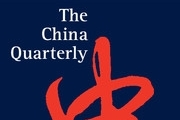In a provocatively titled article published earlier this month, Nikkei reported that “Japan lawmakers want ‘Taiwan Relations Act’ of their own.” The article, which was published in English and attracted attention from U.S.-based Asia policy experts, further suggested that a “2-plus-2 dialogue among the foreign and defense ministers of Japan and Taiwan” is being discussed in Tokyo.
Were Japan’s National Diet to actually pass legislation analogous to the landmark U.S.’ 1979 Taiwan Relations Act or to set up a Cabinet-level government-to-government “2-plus-2 dialogue,” it would be a groundbreaking and historic development in Japan-Taiwan relations. It is therefore no surprise the article attracted so much attention in Washington, D.C.
But neither seems likely to happen…at least not anytime soon or in the manner many may assume.







